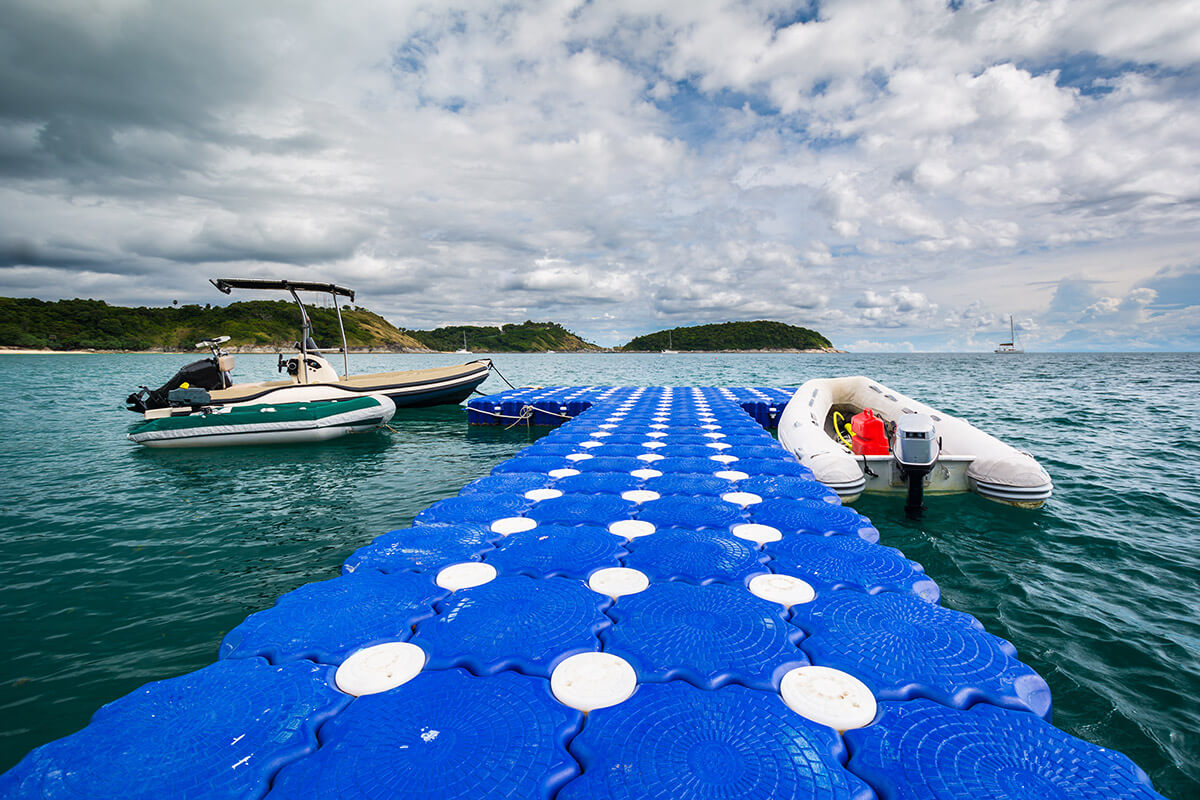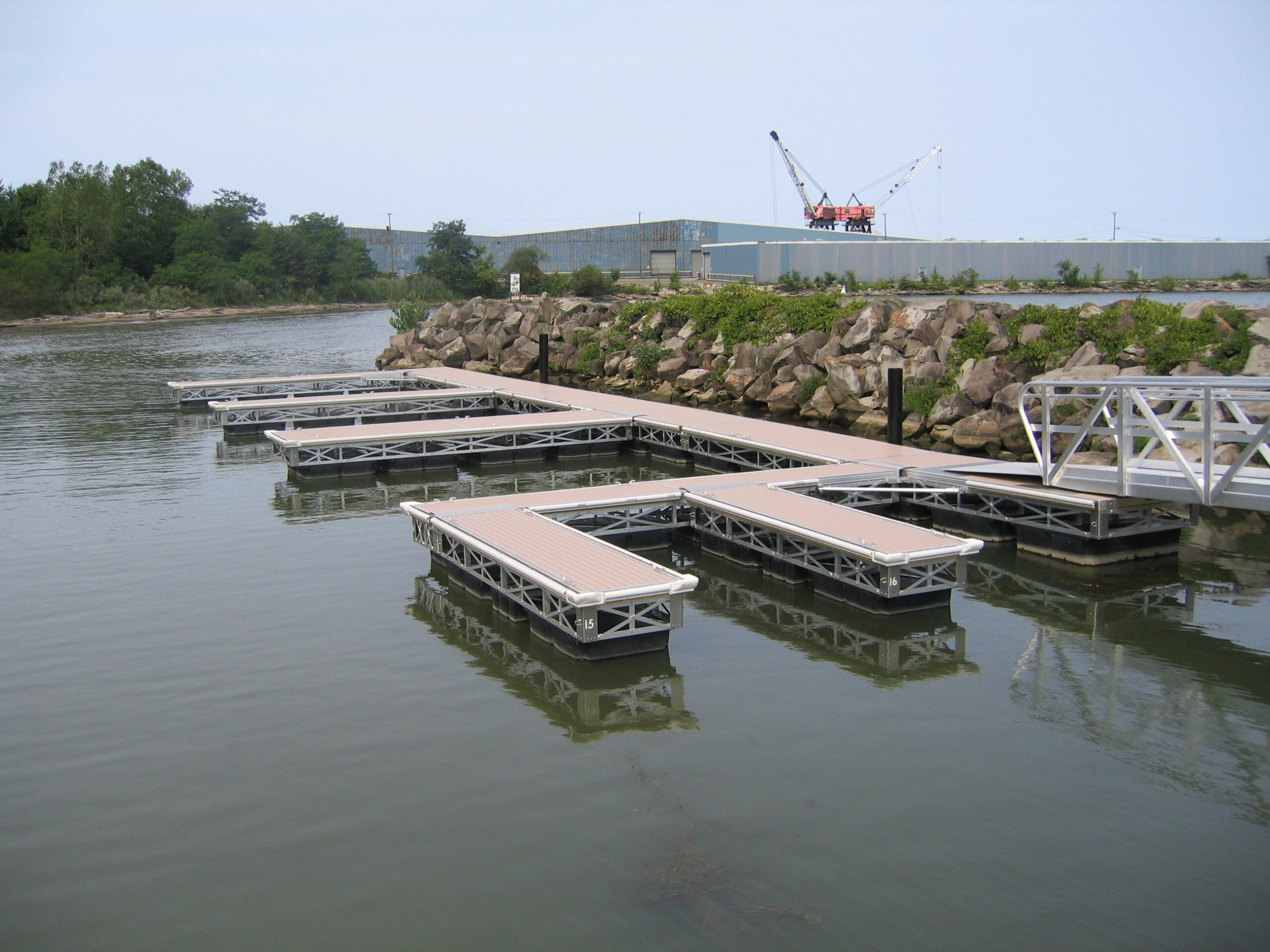Crafting Customized Solutions: Why a Floating Dock Builder is Vital for Unique Demands
Crafting Customized Solutions: Why a Floating Dock Builder is Vital for Unique Demands
Blog Article
Floating Docks: The Suitable Option for Versatile Water Access
Floating docks existing a compelling option for a selection of water accessibility requires, providing versatility that goes beyond traditional mooring options. The modular nature of floating docks facilitates customization, catering to particular demands.
Benefits of Floating Docks
Floating docks deal countless advantages that improve water gain access to for different applications. Their ability to drop and rise with transforming water levels makes them particularly advantageous in settings with fluctuating tides or seasonal variants. This adaptability makes certain that vessels can easily moor without issue for the water's depth, providing a trusted platform for entertainment, industrial, and commercial usages.
Additionally, floating docks are frequently built from resilient products that resist deterioration, making them appropriate for lasting use in marine atmospheres. Their setup is typically much less intrusive than traditional fixed docks, reducing the environmental impact and facilitating quicker deployment (floating dock builder). This adaptability permits easier moving or reconfiguration according to customer demands or environmental changes
Security is another key advantage; floating docks can give steady access for individuals boarding or disembarking from watercrafts and lower the risk of crashes connected with unstable surfaces. They can be developed to accommodate a variety of accessories, such as cleats and fenders, boosting capability. Generally, floating docks represent a reliable service for boosting water accessibility throughout diverse markets while advertising safety and environmental sustainability.

Kinds Of Floating Docks
Different sorts of floating docks deal with various requirements and atmospheres, each created with specific attributes to maximize performance. The most typical types include modular docks, which contain interlocking sections that enable for easy modification and expansion. These docks are excellent for recreational use, as they can be customized to fit numerous boat sizes and water conditions.
One more popular option is the stationary floating dock, which remains anchored in location but floats with altering water levels. dock company. This kind is specifically fit for locations with minimal tidal changes, providing stable gain access to for fishing or swimming. Furthermore, there are drive-on docks, which include a sloped style that allows boats to conveniently drive on and off, making them appropriate for personal boat and smaller sized vessels
For business applications, sturdy floating docks are available, built from reinforced products to stand up to considerable tons and rough marine atmospheres. Eco-friendly floating docks make use of sustainable materials and designs to reduce ecological influence, typically including features like greenery to support local wild animals. Understanding the various sorts of floating docks ensures that customers can choose the most proper service for their certain demands.
Setup Process Review
An effective installment of floating docks requires mindful preparation and focus to information to guarantee ideal efficiency and security. The preliminary action involves evaluating the website conditions, consisting of water deepness, existing, and potential obstacles. This assessment informs the choice of the suitable dock products and style customized to the specific atmosphere.
Next, acquiring needed permits is crucial, as numerous territories have laws regarding building and construction on water bodies. Once consents are safeguarded, the installation can continue. Begin by preparing the foundation, which may involve anchoring systems or pilings customized to the dock kind and regional problems.
Following the structure arrangement, put together the dock sections according to producer specs. Guarantee that all parts are securely attached and straightened to stand up to environmental anxieties. Position the dock in the assigned location, ensuring it is degree and steady.

Maintenance Tips and Ideal Practices
After the installation procedure is full, ongoing upkeep plays a vital function in making sure the longevity and functionality of floating docks. Regular evaluations must be carried out to identify any type of indicators of wear, damages, or degeneration - floating dock company. Look for any loose fittings, splits, or separation in the dock areas, as these can compromise structural integrity
Cleansing the dock is necessary to eliminate debris, algae, and various other accumulation that can influence its appearance and safety and security. Make use of a gentle pressure clean regularly to maintain cleanliness without creating damages to the surface. Furthermore, applying a protective sealant every couple of years can help enhance durability and withstand ecological wear.
Pay interest to the mooring lines and next page anchors, guaranteeing they are free and safe from corrosion. Replace any abject elements immediately to avoid hazards. Seasonal modifications might also be essential; throughout extreme weather conditions, strengthening the dock or rearranging can protect against damage.
Applications for Floating Docks
Floating docks serve a wide range of applications, accommodating both leisure and business needs. In leisure settings, they provide smooth accessibility to rivers for activities such as boating, angling, and swimming. Their flexible nature enables setup in differing water degrees, making sure stable and secure access no matter of tidal changes.
Commercially, floating docks are crucial for marinas and waterfront services. They assist in the docking of vessels, allowing reliable unloading and packing of goods. Their modular style enables for very easy expansion or reconfiguration to suit altering service demands, making them perfect for boat rentals, tour operations, or angling charters.
Additionally, floating docks are used in ecological applications such as aquatic research and environment restoration. They can act as systems for scientific researches, checking water high quality, or conducting wild animals surveys without troubling sensitive ecosystems.
In commercial contexts, he said floating docks are employed in building projects, supplying accessibility to hard-to-reach locations for equipment and personnel. Their flexibility, sturdiness, and minimal impact on the atmosphere make them an ideal option for a vast array of applications, enhancing both capability and availability in various water-based settings.
Conclusion
In verdict, floating docks stand for an ideal service for diverse water gain access to needs, owing to their versatility, durability, and modular design. These frameworks assist in secure mooring for numerous applications while reducing ecological influence during setup. The decreased maintenance requirements better boost their functionality. Floating docks serve as a useful possession for entertainment, business, and environmental tasks, ensuring reputable access to waterways and advertising sustainable practices in water settings.
Floating docks present an go to this website engaging remedy for a range of water access needs, providing flexibility that goes beyond conventional mooring choices.Floating docks deal countless advantages that enhance water accessibility for different applications. Overall, floating docks stand for an efficient service for enhancing water access throughout diverse fields while promoting security and environmental sustainability.
An additional preferred choice is the stationary floating dock, which continues to be anchored in location yet floats with altering water levels.In conclusion, floating docks represent an optimal option for varied water accessibility requires, owing to their flexibility, durability, and modular layout.
Report this page